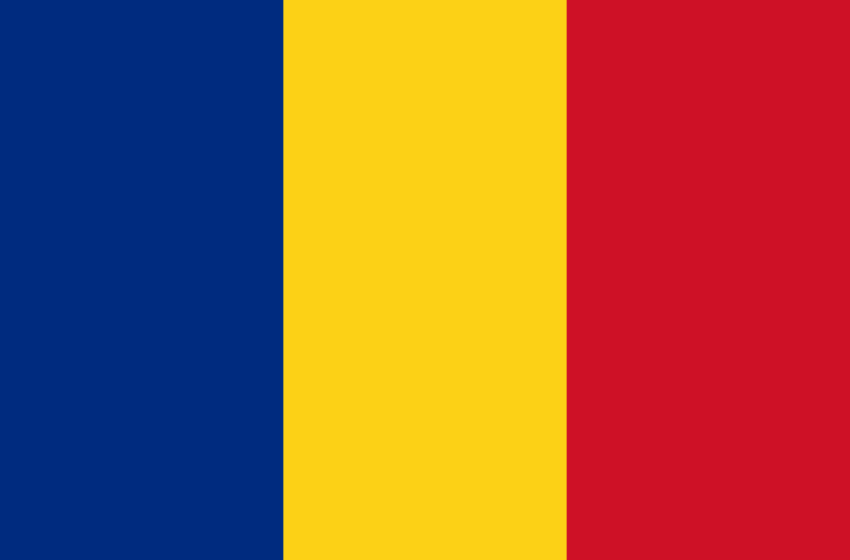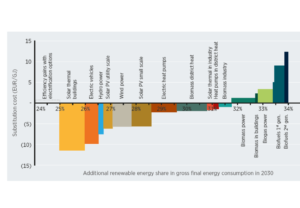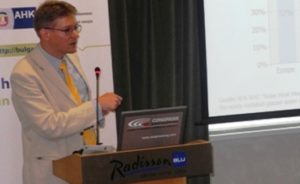Romania: A Subsidy Scheme and its Implementation Problems
August 28, 2012
 Romania is the only major country in Europe without a commercial manufacturer of solar flat plate collectors. The photo, however, shows a small, non-commercial collector manufacturing unit in Timişoara, in the west of Romania. It produces collectors for some solar water heating systems of local Caritas institutions and is supported by the German Urbis Foundation. The reason why all other neighbouring countries – Serbia, Bulgaria, Hungary and Ukraine – have already seen a number of component manufacturers being established, but Romania has not, can be found in the inconsistency of the country’s support policy and the high bureaucratic hurdles when it comes to the programme itself. After applications are approved, there are still contracts to be signed and further papers to be handed in after the installation before applicants can receive their money.
Romania is the only major country in Europe without a commercial manufacturer of solar flat plate collectors. The photo, however, shows a small, non-commercial collector manufacturing unit in Timişoara, in the west of Romania. It produces collectors for some solar water heating systems of local Caritas institutions and is supported by the German Urbis Foundation. The reason why all other neighbouring countries – Serbia, Bulgaria, Hungary and Ukraine – have already seen a number of component manufacturers being established, but Romania has not, can be found in the inconsistency of the country’s support policy and the high bureaucratic hurdles when it comes to the programme itself. After applications are approved, there are still contracts to be signed and further papers to be handed in after the installation before applicants can receive their money.
Photo: Urbis Foundation
According to the annual market statistics of the European Solar Thermal Industry Federation, an estimated 15,500 m² of collector area were newly installed in 2011 – a figure just in between Bulgaria (10,800 m²) and Hungary (21,000 m²). The following table shows Romania together with its neighbours.
|
Country |
Newly installed |
Number of collector |
|
Romania |
15,500 m² (source: ESTIF) |
1 non-commercial (flat plate) |
|
Serbia |
1,800 m² (source: CENTRALA) |
Elsol, Danone (flat plate) |
|
Moldavia |
2,500 m² (research by author) |
0 |
|
Bulgaria |
10,800 m² (ESTIF) |
NES, Tesy (flat plate), and Integral 2005 (concentrated flat plate) |
|
Hungary |
21,000 m² (ESTIF) |
Velux, Spring Technik (flat plate) |
|
Ukraine |
n/a (no reliable information available) |
Sint Solar, Afros (flat plate), and Eco Power, Star Energy (vacuum tube assemblers) |
Readers with additional information about the above-mentioned markets and their industry are very welcome to contact the editor responsible for the news section of solarthermalworld.org at epp@solrico.com.
Romania’s national subsidy scheme, the Green House Programme (Casa Verde), has shown some delay in implementation since its start in 2010. It subsidises homeowners who purchase a heat pump with Romanian Leu (RON) 8,000, or a solar thermal system with RON 6,000. Since 2012, biomass boilers (RON 6,000) have been eligible as well. Unofficial statements from the Romanian Ministry of Environment and Forests, however, point to a further delay: New applications may not be accepted before the end of this year, because all existing contracts have to be paid out first.
The head of the Environment Ministry has already changed twice in 2012. In addition, the agency behind the National Environmental Fund, which coordinates the programme, has also been restructured several times during the same period. This means that applications from last year are only being paid out now and the administrators do not know precisely how much money there is still to be paid out. Official figures, such as the number of applications or the amount of money spent, are not available. Because applicants have one year to install the solar thermal system that they receive a subsidy for, there are a lot of cases in which the contracts have just been signed last year and were be paid out only this year.
This text was written by Mihai Vintila, owner of InfoEst.ro, a Romanian news portal.
More information:
Serbia
http://www.danonesolar.co.rs
http://www.elsol.co.rs
Bulgaria
http://www.sunsystem.bg (NES)
http://www.tesy.com
http://integral2005.com
Romania
http://www.urbis-foundation.de (only German)
Hungary
http://www.velux.com
http://www.springsolar.hu
Ukraine
http://sintsolar.com.ua/
http://www.ecopower.com.ua
http://afros.com.ua/
http://www.star-energy.com.ua/


